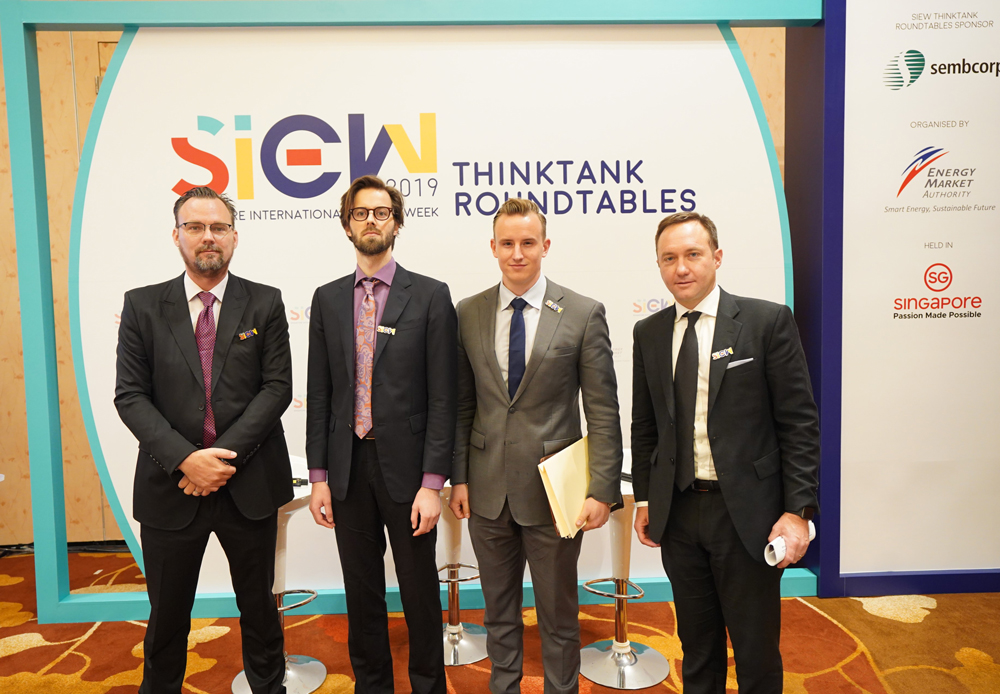By Sher Wei and Atlantic Council

During this crucial period of energy transition, how do oil & gas companies remain relevant? This was discussed intently at SIEW Thinktank Roundtable E on the Role of Oil and Gas Companies on Energy Transition.
To understand the environment in which these companies are operating, Chris Doleman from the Asia Pacific Energy Research Centre (APERC) took the participants through APERC’s Energy Demand and Supply Outlook up through 2050. The electricity demand forecast expects that an additional 3,200GW of generation capacity will be required up to 2050, when 44 per cent of energy will come from renewable generation sources.
Due to the low capacity factors of renewable generation, fossil fuels are still expected to continue dominating the supply pool. The outlook also looked at an alternative scenario where global emissions are limited to within a global temperature increase of 2 degrees Celsius. In this scenario, energy demand sees a decrease of carbon emissions from 20,900 million tonnes in 2016 to 8,600 million tonnes in 2050.
This presentation made it clear that for Asia, balancing growing energy demand and increasing energy access remain significant priorities, but emissions and environmental sustainability must also improve.
How does this impact the business decisions of Oil & Gas companies?
The presentation led into a conversation between the Director of the Atlantic Council Global Energy Center, Randolph Bell, and the Eurasia Group’s Director of Energy and Natural Resources, Henning Gloystein, on the role of oil & gas companies in this complicated landscape.
Gloystein and Bell reviewed the challenges for oil & gas companies as they considered the technologies available to oil & gas companies to help decarbonise, but also support consistent, low-carbon baseload energy resources in a region currently expanding infrastructure for energy access.
Gloystein opined that government policies may not be the key motivation for oil and gas companies to transform. Instead, the key push will come from investors. He shared, “There is a lot of pressure now from investors. Oil & gas companies will have to adapt for the future and find a way to keep producing in a more sustainable way.”
The two also discussed the possibility of specialisation in the oil & gas industry, and that as constraints on supermajors increase, there may be a push for specialisation in certain low-carbon oil & gas production or a focus on a specific type of crude that might better fit the low-carbon world.
The Thinktank highlighted various key drivers such as geopolitical stability and environment, as well as social and governance (ESG) factors, particularly greenhouse gas emissions, which may even vary from continent to continent.
This was followed by a brief exercise managed by Reed Blakemore, Associate Director with the Atlantic Council Global Energy Center. He engaged the audience in a discussion over three prospective business models for oil & gas companies in the energy transition: One making a play into liquids & biofuels, another focused on power generation, and a third which is downsizing into upstream exploration and production. The exercise yielded an interesting discussion about the possible variables policymakers, public and investors might assess when developing the “oil & gas company of the future.”
Ultimately, as concluded by Mr. Blakemore, there is no best model for change. Instead, it is important to evaluate the push and pull at play in the energy transition, and carve out areas for consideration, such as exposure and geopolitical risk.